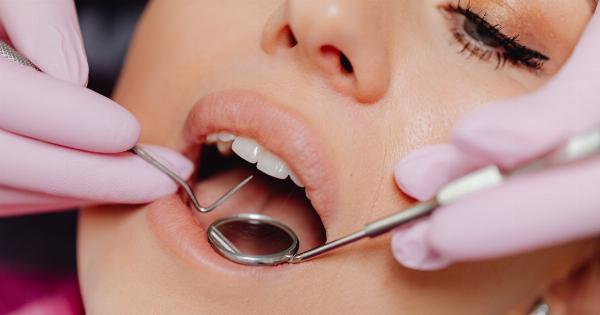Pregnancy is a critical time for women, and it’s vital to take care of one’s health to ensure the safety of the mother and the child. One crucial aspect that is often overlooked during pregnancy is oral health.
Many women believe that dental problems are benign, while others think that they do not need dental care during pregnancy. However, this is far from the truth as pregnancy has a significant impact on oral health. This article aims to provide comprehensive information on oral health during pregnancy.
Why is Oral Health Important During Pregnancy?
Oral health plays a significant role in the general health of the mother and the baby. Pregnant women are more susceptible to dental problems such as gum disease and tooth decay, which can harm the developing fetus.
Furthermore, gum disease has been linked to preterm birth, low birth weight, and other complications during pregnancy. Ignoring your oral health during pregnancy could lead to consequences that could have been avoided with proper dental care.
Common Oral Health Problems During Pregnancy
There are a few common oral health problems that pregnant women may face. They include:.
Gingivitis
Gingivitis, also known as gum disease, is a common condition that affects many pregnant women. This condition occurs when the gums become inflamed due to bacteria in the mouth that produce plaque.
Symptoms include red, swollen gums and bleeding when brushing or flossing.
Tooth Decay
During pregnancy, hormonal changes can increase the risk of tooth decay as the bacteria in the mouth thrive in an environment with higher acid levels and sugar concentration.
Pregnant women are also more likely to have cravings for sugary foods, further increasing the risk of tooth decay.
Pregnancy Tumors
Some pregnant women may develop non-cancerous growths in their mouth. These growths, known as pregnancy tumors, usually form on the gums and can cause discomfort and bleeding.
The good news is that they are not cancerous and can be easily removed by a dentist.
Tooth Mobility
The ligaments that hold teeth in place can become loosened during pregnancy due to hormonal changes, which can cause the teeth to shift and become more mobile.
While this condition is usually temporary, it is essential to seek dental care to ensure that it does not lead to more significant problems.
How to Maintain Good Oral Health During Pregnancy
Fortunately, it’s easy to maintain good oral health during pregnancy by following a few simple steps:.
Brush and Floss Regularly
Brush your teeth twice a day and floss regularly to remove plaque and prevent gum disease and tooth decay.
Eat a Balanced Diet
Ensure that you’re eating a balanced diet with plenty of fruits and vegetables and limit your intake of sugary and acidic foods and drinks.
Visit the Dentist Regularly
Regular dental check-ups and cleanings are essential during pregnancy to catch and prevent issues early on.
Inform Your Dentist That You’re Pregnant
Always inform your dentist if you’re pregnant, as there may be adjustments to your treatment plan to ensure the safety of the fetus.
Use Fluoride Toothpaste
Fluoride can help strengthen your teeth and make them more resistant to decay. Use fluoride toothpaste to brush your teeth to keep them healthy.
Manage Morning Sickness
If you experience morning sickness, rinse your mouth with water or a fluoride mouthwash to remove any stomach acid that can erode your teeth.
Conclusion
Oral health is more important than ever during pregnancy, and women must take care of their teeth and gums for the health of their babies and themselves.
By maintaining good oral hygiene practices, following a healthy diet, and seeing your dentist regularly, you can make sure you and your baby remain healthy throughout pregnancy.




























